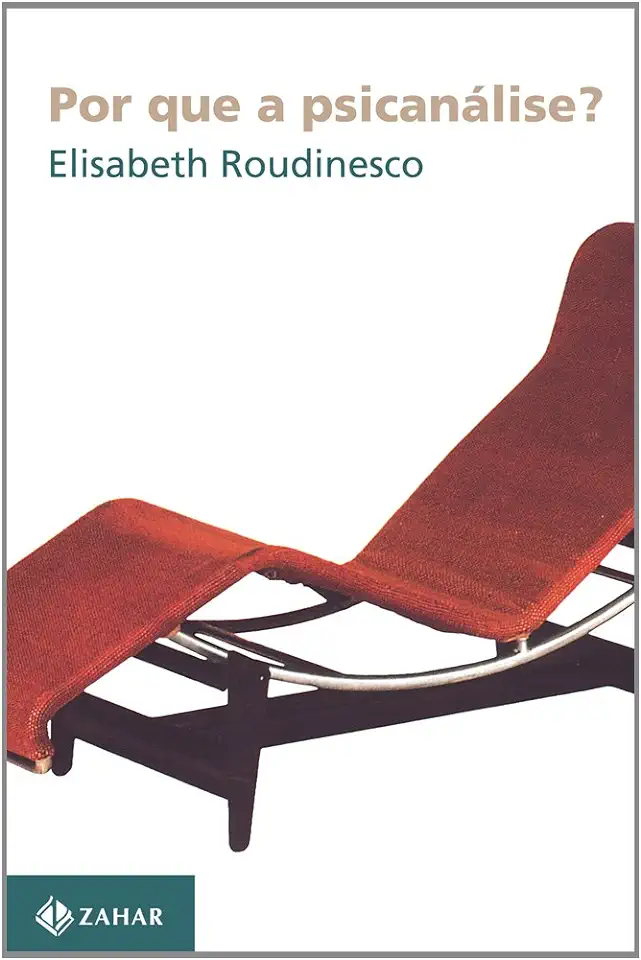
Why Psychoanalysis? - Elisabeth Roudinesco
Why Psychoanalysis?
A Comprehensive Exploration of the History and Relevance of Psychoanalysis
In her groundbreaking book, "Why Psychoanalysis?", Elisabeth Roudinesco, a renowned French historian and psychoanalyst, delves into the fascinating world of psychoanalysis, tracing its origins, evolution, and enduring significance in the field of psychology and human understanding. With meticulous research and engaging storytelling, Roudinesco presents a compelling case for the continued relevance of psychoanalysis in the modern world.
The Birth of Psychoanalysis: Freud's Revolutionary Insights
The book begins by exploring the intellectual landscape of the late 19th century, setting the stage for the emergence of psychoanalysis. Roudinesco vividly portrays the life and work of Sigmund Freud, the father of psychoanalysis, highlighting his groundbreaking insights into the unconscious mind, dreams, and the dynamics of human behavior. She delves into Freud's revolutionary theories, such as the Oedipus complex and the concept of transference, which challenged conventional notions of human nature and paved the way for a deeper understanding of the human psyche.
The Evolution of Psychoanalysis: Diverse Perspectives and Contributions
Roudinesco then embarks on a captivating journey through the evolution of psychoanalysis, showcasing the contributions of key figures who shaped the field. She explores the work of influential psychoanalysts such as Carl Jung, Alfred Adler, Melanie Klein, and Jacques Lacan, each of whom brought unique perspectives and innovations to the field. Roudinesco highlights the theoretical debates, controversies, and schisms that have shaped the psychoanalytic landscape, demonstrating the richness and diversity of psychoanalytic thought.
The Clinical Practice of Psychoanalysis: Unraveling the Inner World
At the heart of the book lies a compelling exploration of the clinical practice of psychoanalysis. Roudinesco provides a detailed account of the psychoanalytic process, from the initial consultation to the development of the therapeutic relationship. She vividly illustrates how psychoanalysis enables individuals to gain profound insights into their unconscious motivations, conflicts, and patterns of behavior, leading to personal growth and emotional healing.
Psychoanalysis and Society: A Transformative Force
Roudinesco goes beyond the clinical setting to examine the broader impact of psychoanalysis on society. She explores the influence of psychoanalysis on literature, art, philosophy, and social thought, demonstrating how it has shaped our understanding of human nature and our place in the world. Roudinesco argues that psychoanalysis offers a unique lens through which we can comprehend social phenomena, cultural dynamics, and the complexities of human relationships.
The Relevance of Psychoanalysis in the Modern World
In the final section of the book, Roudinesco addresses the question of why psychoanalysis remains relevant in the 21st century. She confronts criticisms and challenges faced by psychoanalysis, while also highlighting its enduring contributions to our understanding of mental health, human development, and the pursuit of personal fulfillment. Roudinesco emphasizes the importance of psychoanalysis in addressing contemporary issues such as anxiety, depression, addiction, and the search for meaning in an increasingly complex world.
Conclusion: A Timeless Exploration of the Human Psyche
"Why Psychoanalysis?" is a tour de force that offers a comprehensive and engaging exploration of the history, evolution, and relevance of psychoanalysis. Elisabeth Roudinesco's masterful work is a must-read for anyone interested in psychology, human behavior, and the pursuit of self-understanding. With its rich insights, captivating storytelling, and persuasive arguments, "Why Psychoanalysis?" is a book that will leave a lasting impact on readers, inspiring them to delve deeper into the complexities of the human mind and the transformative power of psychoanalysis.